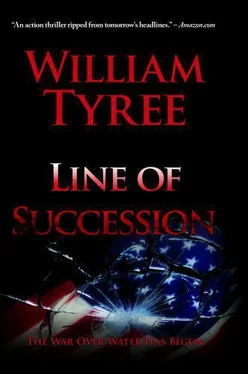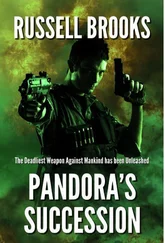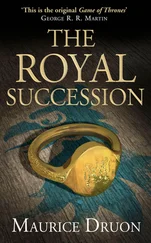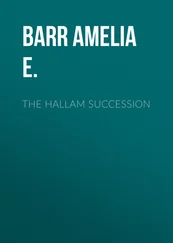William Tyree - Line of Succession
Здесь есть возможность читать онлайн «William Tyree - Line of Succession» весь текст электронной книги совершенно бесплатно (целиком полную версию без сокращений). В некоторых случаях можно слушать аудио, скачать через торрент в формате fb2 и присутствует краткое содержание. Год выпуска: 2010, Издательство: Massive Publishing, Жанр: Триллер, на английском языке. Описание произведения, (предисловие) а так же отзывы посетителей доступны на портале библиотеки ЛибКат.
- Название:Line of Succession
- Автор:
- Издательство:Massive Publishing
- Жанр:
- Год:2010
- ISBN:нет данных
- Рейтинг книги:3 / 5. Голосов: 1
-
Избранное:Добавить в избранное
- Отзывы:
-
Ваша оценка:
- 60
- 1
- 2
- 3
- 4
- 5
Line of Succession: краткое содержание, описание и аннотация
Предлагаем к чтению аннотацию, описание, краткое содержание или предисловие (зависит от того, что написал сам автор книги «Line of Succession»). Если вы не нашли необходимую информацию о книге — напишите в комментариях, мы постараемся отыскать её.
Line of Succession — читать онлайн бесплатно полную книгу (весь текст) целиком
Ниже представлен текст книги, разбитый по страницам. Система сохранения места последней прочитанной страницы, позволяет с удобством читать онлайн бесплатно книгу «Line of Succession», без необходимости каждый раз заново искать на чём Вы остановились. Поставьте закладку, и сможете в любой момент перейти на страницу, на которой закончили чтение.
Интервал:
Закладка:
“Mister President,” Deputy Director Davis said as he tried to get off the phone, “I’ll call you as soon as I have details.”
“You’ve got a helluva nerve. Don’t you dare cut it short on me at a time like this.”
“Sorry, Mister President. It’s just that — “
“Any intel pointing to Iranian involvement in this?”
“Not that I know of, sir. Do you have reason to believe they did? “
“Let’s just say the timing is odd,” the President replied, thinking of the sudden, out-of-nowhere request by the Iranian Ambassador. So far, Eva was the only cabinet member whom he’d alerted about the meeting with the Iranians, and he sure as hell wasn’t going to explain it to the very green Davis now. He hung up and looked out the window as Marine One banked at high speed.
His phone rang again. It was Julian Speers. “Congressman Bailey is dead,” Speers blurted out. “He was killed in the blast.”
The President was stunned. “I just got off the phone with Homeland Security. They’ve got nothing on that.”
“I was there!” Speers shouted so loudly that the President had to pull the phone away from his ear. “I’m ninety-eight percent sure. The explosion was so big. Nothing could’ve survived that.” President Hatch got a breathless earful as Speers confessed that he had disobeyed the order to take a vacation, and had instead gone down to Monroe this very morning to talk to Congressman Bailey.
“God Almighty, Julian. Don’t go rogue on me. I need you.”
“I’m sorry. I can explain.”
“Never mind. Where are you now?”
“Headed back to the airport. Sir, I don’t want to sound paranoid, but maybe we should operate from Site R.” Site R was codename for Raven Rock, the not-so-secret, but still virtually impenetrable emergency bunker in Maryland.
“Negative. Meet me at Camp David.”
“I’d like to check with Agent Rios on that. I’d like to get his opinion about heading to Site R.”
The President signed off tersely, privately fearing Speers was right as usual. He knew that if he had followed his Chief of Staff’s advice more often, the administration would probably be in better shape. His main problem with Julian was that he made decisions from a position of fear. But as the President was learning, the world had devolved into a state where fear-based problem-solving was often the best approach.
He looked out the window and saw the green Maryland hills below blurring past. He turned to the Secret Service agent sitting in the seat beside him, and wished the man was Eva. She would know how to approach the meeting.
“Incoming!” the pilot suddenly shouted over the cabin radio. Deafening missile warning alarms sounded. Marine One jerked wildly left. The President grasped for something to hold onto.
A brilliant white flash blinded him temporarily. One of the decoy choppers had been hit. The President watched as the Marine One clone flying next to them jerked right to evade a SAM.
Time slowed as the President watched the adjacent Kestrel’s rotors slice into Marine One’s aft, sending the treetop-level craft spinning downward through the hillside vegetation. A vision of his late wife was suddenly thrust upon him. She was sickly and cross. He tried hard to summon an image of her face in the good times, before the cancer. A laugh. A smile. He couldn’t. His thoughts turned to that gray winter day in Northern Virginia at Sovereign Hills Cemetery. Eva had been there, standing on the other side of the casket with the others from his Gubernatorial staff. He remembered the pre-inscribed, double-wide headstone.
Jan Tolle Hatch
Loving Mother
Born: 1960
Died: 2009
Isaac Samuel Hatch
Governor of Virginia
Born: 1961
Died:
The idea that they would someday be interred side-by-side had comforted his wife in the days before they passed. But Hatch had never been at peace with it. The pre-inscribed headstone seemed to beckon death.
A wave of compressed air knocked Marine One sideways. Kevlar air bags deployed in a protective cocoon around him. He was completely insulated as the smoldering chopper jounced manically through several poplar trees to the ground.
The President blacked out as he hung upside down by his safety belts. The air bags shrank magically away. The luxury helicopter cabin the President had known was reduced to a series of highly protective roll bars, not unlike the sand rails he had raced as a boy. The roll cage was in a patch of underbrush, and there was no sign of the Secret Service agent who had sat next to him, the pilots or any other part of Marine One.
Smoke wafted through the roll cage along with the scent of burning fuel and fiberglass. The smell brought him awake. The President blinked. Sharp pain bolted through his neck and shoulders, but he could move. He was alive.
It took several seconds for the President to realize that he had survived a deliberate attack. The Ambassador had set him up. There was little question about that.
He imagined a group of young Iranians, or other extremists from the Allied Jihad, perhaps in the U.S. on student visas, searching for him in the woods. He needed to get as far away from the wreckage as possible.
He pawed at the release button on his safety belt. It was jammed. He reached into his tweed blazer and found a pen. He pushed the tip out and tried using it to trip a bit of exposed spring in the belt buckle. Nothing worked.
Two quick bursts of gunfire echoed through the forest. The President smiled as he recognized the sound of an American-made M4 Carbine.
During his first term, members of the Secret Service’s uniformed Emergency Response Team had taught him basic survival tactics in the unlikely event that he was caught without protection in a hostile environment. He had forgotten most of it by now, but one thing that had stuck with him was the difference between the sound of American-made M4s versus the developing world’s weapon of choice, the AK-47. “If you hear an AK,” he remembered one of the ERTs telling him, “run like hell or go into deep hiding if you can. If you hear M4s, stay put. Help is nearby.”
He expected the gunfire was from Ulysses’ Camp David unit, and that they were already hunting down the assailants. Last year, when the need for highly skilled special ops soldiers had broken out in the Central African Republic, General Wainewright had informed him that none were available. The last remaining Special Forces group that was not deployed was Marine Security Company, Camp David, a unit in which each solider was hand-picked from infantry, then sent through a rigorous program of psychological and physical tests to qualify for Marine Security Training in Chesapeake, Virginia. Wainewright told him that since there had never been an incident at Camp David, apart from accidental civilian aircraft fly-overs, MSC–CD’s skills were being wasted there. He suggested that the unit be deployed to the combat zone, while Camp David security should be left to a joint effort between senior Ulysses USA employees and the Secret Service. The President had agreed, and he was anticipating seeing members of that highly paid Ulysses unit any moment now.
He hung helplessly from his safety belts for another minute, his ears attuned to a crackling forest fire that seemed to be getting closer. Finally, he heard rustling and footsteps. He remained perfectly still except for the heaving of his lungs.
Then, he heard conversation — two men, somewhere behind him. They were speaking a language that was nothing like any foreign tongue he’d ever heard before. He held his breath and pulled his limbs close to his body, as if to make himself smaller, less visible.
A pair of American-made hiking boots stepped directly in front of the roll cage. The upside down President strained his neck to see Chris Abrams’ face staring directly at him. It hurt to hold his neck this way. He dropped his head for a moment before taking another look.
Читать дальшеИнтервал:
Закладка:
Похожие книги на «Line of Succession»
Представляем Вашему вниманию похожие книги на «Line of Succession» списком для выбора. Мы отобрали схожую по названию и смыслу литературу в надежде предоставить читателям больше вариантов отыскать новые, интересные, ещё непрочитанные произведения.
Обсуждение, отзывы о книге «Line of Succession» и просто собственные мнения читателей. Оставьте ваши комментарии, напишите, что Вы думаете о произведении, его смысле или главных героях. Укажите что конкретно понравилось, а что нет, и почему Вы так считаете.












